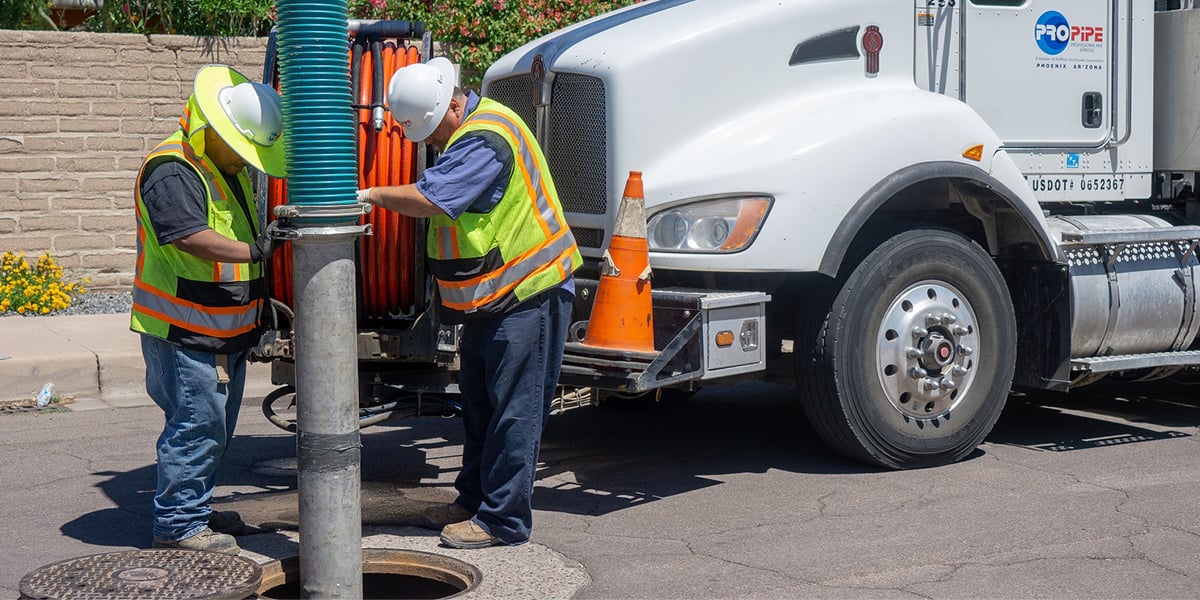Sewer Lateral Inspection FAQs and Best Practices

Introduction: The Importance of Sewer Lateral Inspections
Sewer laterals play a crucial role in connecting private properties to municipal sewer systems. For municipalities, utilities and contractors, regular sewer lateral inspections are essential to maintain system integrity, prevent backups and protect public health.
Frequently Asked Questions (FAQs)
What is a sewer lateral?
A sewer lateral is the pipe that runs from a property’s building to the municipal sewer main. It’s a critical component for carrying wastewater away from homes and businesses.
Why do sewer laterals need inspection?
Regular inspections help detect damage, blockages and infiltration of tree roots, all of which can cause costly repairs and service disruptions if left unaddressed.
How often should sewer laterals be inspected?
Inspections should be done every 3-5 years or as needed, depending on factors like the age of the infrastructure and the local environment. Frequent inspections help ensure problems are detected early, reducing the risk of major damage.
What are the signs of a faulty or damaged sewer lateral?
Common warning signs include backups, slow drains, foul odors and water pooling in unexpected areas. If these signs are present, an inspection should be scheduled immediately.
Who is responsible for maintaining sewer laterals?
In most cases, property owners are responsible for maintaining the sewer lateral from the building to the property line. Municipalities are responsible for the mainline, though it’s essential to clarify responsibilities with local ordinances.
What inspection technologies are used?
Advanced technologies like CCTV, robotic crawlers and GIS mapping provide accurate assessments of the pipe's condition and help detect potential issues before they become severe.
How does trenchless technology support sewer lateral inspections?
Trenchless technology, such as horizontal directional drilling (HDD) and pipe bursting, allows for minimally invasive inspections and repairs, reducing disruption to surrounding areas and improving efficiency.
Best Practices for Sewer Lateral Inspections
Adhering to best practices ensures sewer lateral inspections are efficient and effective, helping prevent costly repairs and service disruptions.
- Regular and Proactive Inspections
Routine inspections help identify minor issues before they escalate into major problems. Early detection saves money on repairs and prevents damage to surrounding infrastructure.
-
Utilize Advanced Technology
Investing in modern technologies such as CCTV and robotic crawlers ensures comprehensive inspections and more accurate assessments, ultimately leading to better maintenance decisions. -
Comprehensive Documentation
Detailed reports, including videos and images, provide a historical record of the condition of sewer laterals. This is crucial for long-term maintenance planning and compliance with regulatory standards. -
Collaborate with Industry Experts
Partnering with companies like National Underground Group ensures municipalities and contractors are working with experienced professionals who use the latest technology to deliver precise results. -
Risk Mitigation and Compliance
Regular inspections help mitigate risks such as blockages and environmental hazards, ensuring that the infrastructure complies with all relevant safety and environmental regulations.
Common Challenges and Solutions
Despite the importance of sewer lateral inspections, several challenges can hinder the process. Here are some common issues and how to overcome them.
Access and Visibility Issues
Sewer laterals are often difficult to access due to their location underground or under structures. Using trenchless technology and robotic systems allows for inspections in even the most challenging environments.
Aging Infrastructure
As infrastructure ages, the likelihood of problems increases. Inspections play a crucial role in assessing the condition of older pipes and ensuring they are still functioning properly.
Coordination Between Stakeholders
Effective communication between municipalities, utilities and contractors is essential to avoid miscommunication, overlap or gaps in inspections and maintenance.
The Role of National Underground Group
National Underground Group provides comprehensive sewer lateral inspection services, utilizing leading-edge technology and a skilled team of professionals. From cleaning to assessment and rehabilitation, National Underground Group’s seamless service approach simplifies project management while ensuring high-quality results. Municipalities and utilities can benefit from reduced risk, streamlined operations and cost savings through a proactive, coordinated approach to sewer lateral inspections.
Conclusion: Safeguarding Infrastructure with Proper Sewer Lateral Inspections
Sewer lateral inspections are essential for maintaining the health of utility systems, preventing property damage and ensuring regulatory compliance. With regular inspections, advanced technology and the expertise of National Underground Group, municipalities, utilities and contractors can ensure the long-term safety and functionality of their sewer infrastructure.
Get Expert Support for Sewer Lateral Inspections
To schedule a sewer lateral inspection or to learn more about these inspections and best practices for maintaining underground infrastructure, contact National Underground Group today.
Discover the National Underground Difference
Learn how National Underground Group’s commitment to safety, quality and reliability sets us apart in the industry. From advanced technology to unmatched expertise, we deliver exceptional results while keeping your infrastructure safe and efficient.
